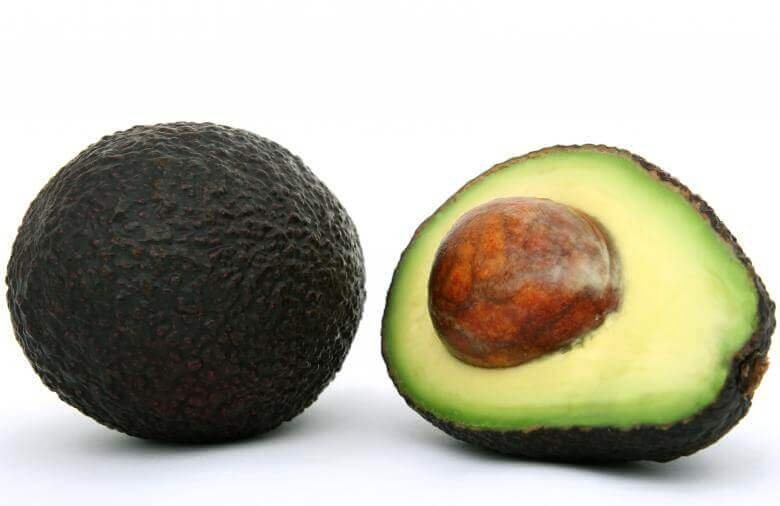Can Dogs Eat Avocado
Can Dogs Eat Avocado? Avocados are a popular fruit that is known for its creamy texture and rich flavor. They are also packed with nutrients, including potassium, vitamin K, and healthy fats. But can dogs eat avocado? The short answer is no, dogs should not eat avocado. Avocados contain persin, which is a fungicidal toxin that can be harmful to dogs. Also read can dog eat eat orange peels
Persin is found in the leaves, fruit, seeds, and bark of the avocado plant. It is a chemical compound that is used to protect the avocado from fungal and bacterial infections. While persin is not toxic to humans, it can be deadly for dogs. Ingesting even a small amount of avocado can cause vomiting, diarrhea, and even death in some cases.

The symptoms of persin toxicity in dogs can vary depending on the amount of avocado consumed and the size of the dog. Smaller dogs are more at risk of severe symptoms than larger dogs. Symptoms can include vomiting, diarrhea, difficulty breathing, fluid accumulation in the chest, and even death. If your dog has ingested avocado and is showing any of these symptoms, you should seek immediate veterinary care.
It is important to note that not all parts of the avocado are toxic to dogs. The flesh of the avocado is the most dangerous part, but the skin and pit of the avocado can also contain persin. Dogs should not be given any part of the avocado, as even small amounts can cause harm.
In addition to persin, avocados also contain a high fat content. Feeding your dog avocado can cause pancreatitis, which is an inflammation of the pancreas. This can lead to abdominal pain, vomiting, and diarrhea. If left untreated, pancreatitis can be fatal.
If you want to give your dog a healthy treat, there are many options that are safe for them to eat. Some good options include carrots, apples, green beans, and cooked sweet potatoes. These fruits and vegetables are low in fat and high in vitamins and minerals that are essential for a dog’s overall health.
In conclusion, dogs should not eat avocado. Avocados contain persin, a fungicidal toxin that can be harmful to dogs and can cause vomiting, diarrhea, and even death in some cases. Additionally, the high fat content in avocados can cause pancreatitis. If your dog has ingested avocado and is showing any symptoms, seek immediate veterinary care. There are many healthy treats that dogs can enjoy that are safe for them to eat.
Can Dogs Eat Avocado Oil
Avocado oil has become increasingly popular in recent years, and for good reason. It is rich in healthy monounsaturated fats, antioxidants, and vitamins that can benefit human health. But what about dogs? Can dogs eat avocado oil? The short answer is yes, dogs can eat avocado oil in small amounts, but it’s important to be aware of the potential risks and benefits.
Avocado oil is made from the flesh of the avocado fruit and is high in monounsaturated fatty acids such as oleic acid. These healthy fats can help to lower cholesterol levels and improve heart health. They can also provide anti-inflammatory benefits and support skin and coat health.
However, it’s important to note that avocados and avocado oil can contain persin, which is a fungicidal toxin that can be harmful to dogs. Persin is found in the leaves, fruit, seeds, and bark of the avocado plant. While persin is not toxic to humans, it can be deadly for dogs. Ingesting even a small amount of avocado can cause vomiting, diarrhea, and even death in some cases.
The symptoms of persin toxicity in dogs can vary depending on the amount of avocado consumed and the size of the dog. Smaller dogs are more at risk of severe symptoms than larger dogs. Symptoms can include vomiting, diarrhea, difficulty breathing, fluid accumulation in the chest, and even death. If your dog has ingested avocado oil and is showing any of these symptoms, you should seek immediate veterinary care.
Additionally, avocado oil is high in fat and if fed in large quantity it can cause pancreatitis, an inflammation of the pancreas. This can lead to abdominal pain, vomiting, and diarrhea. If left untreated, pancreatitis can be fatal.
When giving avocado oil to your dog, it’s important to start with a small amount and monitor your dog for any adverse reactions. If your dog does not have any adverse reactions, you can gradually increase the amount of avocado oil in their diet.
It’s also important to keep in mind that avocado oil is not a replacement for a balanced diet. Dogs still need to consume a diet that is high in protein and low in fat.
It’s also important to make sure that the avocado oil you’re giving your dog is pure, unrefined, and cold-pressed. This ensures that the oil is free from any chemical solvents or other harmful additives.
In conclusion, dogs can eat avocado oil in small amounts, but it’s important to be aware of the potential risks and benefits. Avocado oil is high in healthy monounsaturated fats and can provide anti-inflammatory benefits and support skin and coat health. However, it’s important to be aware that avocados and avocado oil can contain persin, which is a fungicidal toxin that can be harmful to dogs. Additionally, avocado oil is high in fat, if fed in large quantity it can cause pancreatitis. If your dog has ingested avocado oil and is showing any adverse symptoms, seek immediate veterinary care. It’s also important to start with a small amount of avocado oil and monitor your dog for any adverse reactions and make sure that the avocado oil you’re giving your dog is pure, unrefined, and cold-pressed.


